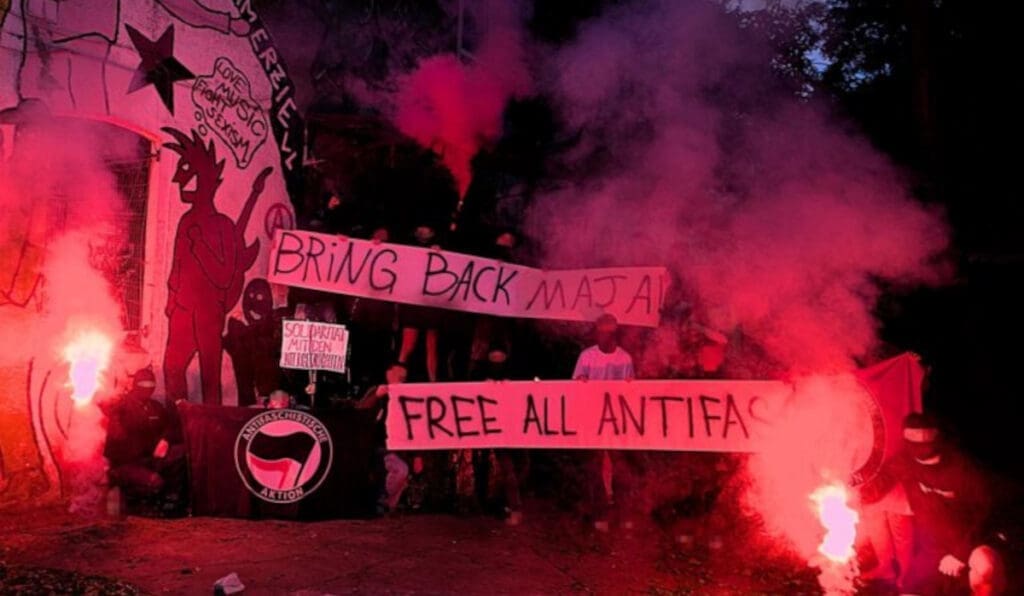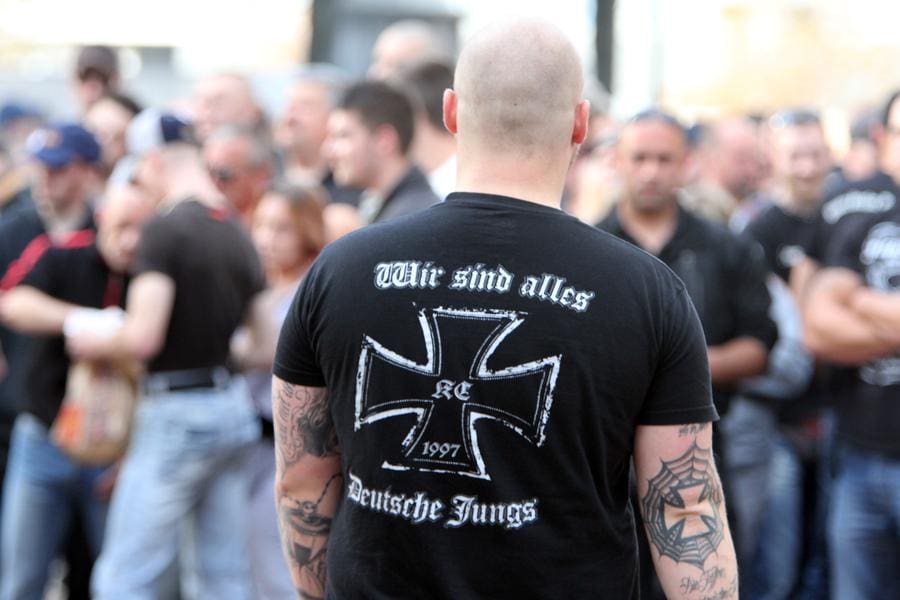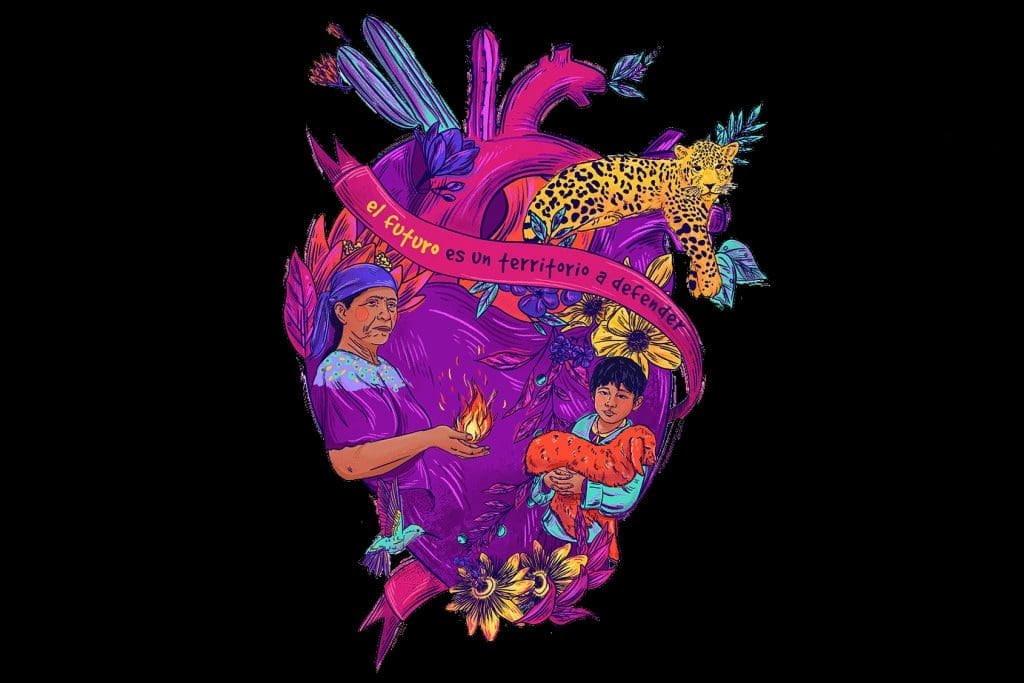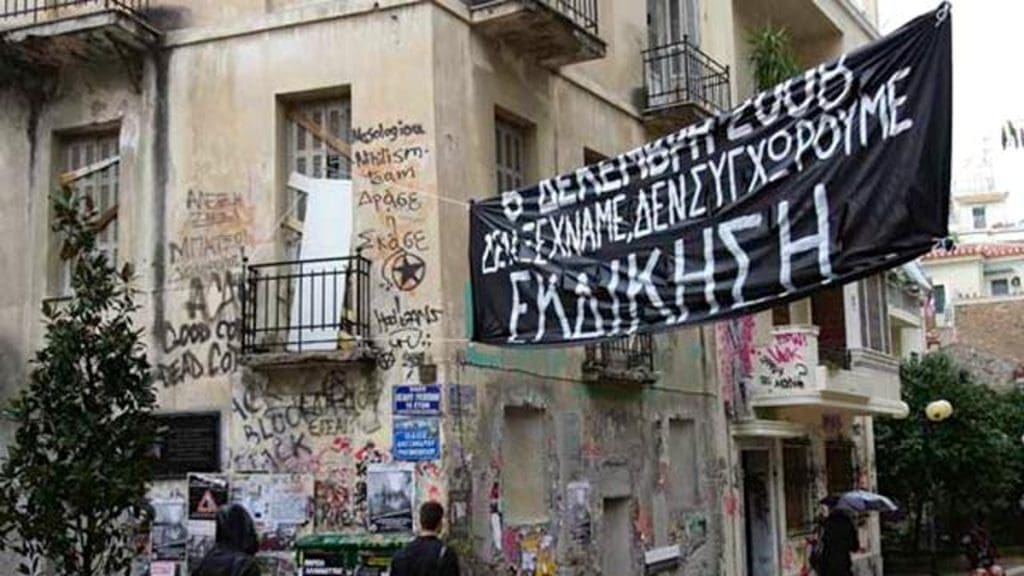International Antifascist Solidarity: The Budapest-Komplex
As the Hungarian government aggressively responds to a perceived antifascist threat, an international activist network is doing support work amid a mixed bag of official actions.
Interview with Budapest Antifascist Support Committee by Joe Keady
11 December 2024
Interviewer’s Note: Every February 11, neo-Nazis from across Europe (and particularly Eastern Europe) descend on Budapest for an event they call the “Day of Honor.” The date marks the anniversary of a 1945 battle when some seven thousand SS and Wehrmacht soldiers, together with Hungarian collaborators, attempted to break out of the city after they were surrounded by the Soviet Red Army. Only a few hundred of them survived.
Although the annual gathering memorializes a time when Nazis were routed and died miserably, the “Day of Honor” has grown into an important international fascist networking event since it began in 1997. Over the years, it has been organized by a rogues’ gallery of neo-Nazi groups and individuals, including the Hungarian branch of the Blood & Honour network.
Now, it has evolved into a multi-day extravaganza involving concerts, parties, and a sixty-kilometer “hike” along the route that the Nazi soldiers took in 1945. It also offers would-be Supermen the opportunity to stroll around Budapest wearing Nazi-era uniforms.
Each year, of course, participants are met with a blunt exchange of opinions from antifascists, who also come from a number of different countries. In 2023, various openly fascist attendees were involved in physical altercations with anonymous antifascists, and the Hungarian authorities have been very proactive about pursuing alleged attackers in countries across Europe.
Possibly the best known among them is Ilaria Salis, an Italian antifascist who was on house arrest in Budapest until she gained legal immunity after being elected to the European Parliament last June. Readers may also have seen the hashtags #FreeMaja and #FreeHanna in reference to two other arrestees from Germany, particularly since Hanna’s arrest in Nuremberg last May and Maja’s sudden, late-night extradition from the German state of Saxony to Hungary at the end of June.
The Budapest Antifascist Support Committee (BASC) was formed to support the people who are now being targeted by the Hungarian government for their alleged involvement in the confrontations in Budapest in February 2023. The following is a transcript (edited for length and clarity) of a conversation I recently had with one of the BASC organizers.
* * *
Joe Keady: What is the BASC? When did it form and what are its objectives?
Budapest Antifascist Solidarity Committee: Shortly after the events in Budapest, we noticed that the people being prosecuted were people we want to support. In our opinion, antifascism comes in many forms. We want to support militant antifascism and try to help the people being persecuted and the people in jail, try to raise money for lawyers, that kind of thing. We try to help them when they’re arrested, set up letter-writing campaigns for prisoners, and also reach out to their families and friends.
It’s a rough situation for many parents and family members. I mean, look at Maja’s father, who is jetting between Jena [Germany] and Budapest whenever he’s got time to support his child, who is sitting in a Hungarian prison.
In our view, those people supported antifascist goals, and now we want to support them, because we think antifascism isn’t just holding hands and yelling that Nazis are bad. We think there are things you can do against them. It can be demonstrations, videos, music, that kind of thing, but it can also be direct action, if you see a need for that and no one else is doing it. Someone has to do it.
JK: Several of the Budapest arrestees are from Germany, where the way antifascism is understood has changed a lot in recent years. Can you describe that evolution a bit and say what it means for the Budapest cases?
BASC: I really like the German word “Schmuddelkinder,” which basically means “dirty kids” or “ragamuffins.” That’s the position we’re in. In Germany, there was the big fascist upsurge in the 1990s after reunification. It calmed down, but there was another big climax in the early 2000s, and Chancellor Gerhard Schröder called for an “Aufstand der Anständigen,” so like “resistance of the good people,” against fascists.
From the early 2000s until around 2010 or 2012, you had this antifascism by the state that was all glossy and all democracy and Nazis are bad and that kind of thing. That antifascist thinking became part of this new German identity, because it was a nice look. But at that time, there wasn’t really a big Nazi movement. You had smaller groups, you had individuals, but you didn’t have big incidents, and therefore it was easy to say, We’re all against Nazis.
Over time, fascists noticed they could do things—and then there was also a proper antifascist response. That’s when a gap emerged between the antifascism the state wanted and the type of antifascism that’s really necessary.
With the Budapest cases—and especially with the videos, where you can see people slapping Nazis and going to the ground and kicking and slapping them again—before those videos, people knew, Okay, there are Nazis, and Nazis are genuinely bad, and it’s okay if they get smashed. But now there’s video and everyone sees what it looks like.
To me, that’s the hardest thing to explain to people: that this is also okay, that this is how it happens. Even for people on the left and who are for antifascist politics, they’re like, Those are the dirty kids, the Schmuddelkinder. It’s hard to explain this type of antifascist work.
JK: Can you say anything about the people who attend the Day of Honor?
BASC: The media, especially the Hungarian media, claim that the people who were attacked were just tourists and normal citizens. That’s a lie, surprisingly [laughs].
For instance, there’s László Dudog. László has been a singer in different Nazi bands for years. He is an organizer with Blood & Honour in Hungary, and his band played at the Day of Honor in 2022. He’s really well connected in the European Blood & Honour movement, and if you look for pictures of László, it’s hard to find one where he isn’t wearing a Nazi t-shirt. He has a giant Klansman tattooed on his arm, a big “88” tattoo on his chest, he has t-shirts with swastikas, with Rudolf Hess.
In the Hungarian media, they always talk about László Dudog as just a Hungarian patriot and musician, and he was attacked on his way home with his wife, and he doesn’t know what happened.
Another one is a German guy who did a short interview with another German fascist where he talked about the attacks while wearing a track suit jacket from a Nazi label. He says it just made him stronger, and he stood up really quick “like a German oak”—it’s really funny to watch.
Then there are other people from a Polish Nazi party. They are framed in the Hungarian media as Polish tourists who were just in the city. The Nazi party they are a part of is way more rightwing than the last rightwing party that was in charge in Poland. It’s called Ruch Narodowy [National Movement], and the party spokesman once described it as a party “that leftists, liberals, and faggots should be afraid of.”
One other is Tamás Lipták, who is the leader of the most important Hungarian fascist organization, Légió Hungária, and part of the Day of Honor organizing committee. He has a pretty big Telegram channel where he posts Nazi stuff daily.
Those are the “victims”—the “tourists” and the “hikers.”
JK: How many people have been arrested so far and in what countries? And how many have actually been extradited to Hungary?
BASC: Tobi has been sitting in a Hungarian jail since February 2023—since the event. He was arrested in Budapest while he was in a taxi. Maja is currently in a Hungarian jail and was extradited from Germany. Ilaria was arrested, but is now in the European Parliament, so she’s free for now.
Then there’s Gabri. The Italian courts ruled against his extradition, so there was no charge in Italy. He’s free. It wouldn’t be a good idea for him to go to Hungary, and maybe he should stay in Italy, because any other European country could extradite him to Hungary. But in Italy, there are no charges. He’s a free man.
Then there is the third person in the current trial in Budapest, that’s Anna. She hasn’t been arrested, she’s free in Germany, but she has to go to the police once a week to say Hi, I’m still here.
And Hanna, of course. Hanna is also from Germany. She’s in jail in Nuremberg right now. She was arrested in May.
There’s also Gino. He was arrested in Finland. They gave him an ankle monitor.
JK: So like house arrest?
BASC: Yeah, something like that. They were going to extradite him from Finland to Hungary too. Then they just found his ankle bracelet, and now no one knows where he is. [Note: This interview was conducted before Gino was arrested by French authorities in Paris on November 12.]
The authorities are trying to find something like twelve or thirteen more people in this case. They’re untergetaucht.
JK: Like “went underground?” “Disappeared?”
BASC: We try to make a distinction: more like, “submerged” or “in hiding,” not like they “went underground.” For us, there’s a difference, because when you go underground for political reasons, that’s a decision you make. If you go underground, you continue working, you have political work—that can be writing or doing what you were doing before. We use this term to mean people who are immersed, or submerged.
But because of the conditions if they are extradited to Hungary, and given the way German authorities are handling this case, there is no way for them to get a fair trial or anything like that, so it’s more like their best chance to not get caught. With Maja’s case, you can clearly see how the German government is handling it. To willingly go to a country where there are no legal protections, where there is a fascist government—that’s not an option.
That’s not the same thing as going underground. “Going underground,” as the authorities and some media try to label it, is like something you do to be more radical, to train, to organize new actions, that kind of thing. The way we see it, people have no choice but to go into hiding.
JK: Would you say that German authorities are trying to invoke the history of the Red Army Faction (RAF) or something like that? Implying that these antifascists are engaged in some kind of ongoing terrorist activity?
BASC: Some of the authorities are trying to do that. In Saxony, there is a special task force called SoKo LinX [Special Commission on Leftwing Extremism]. It was founded in 2019 after some actions against big construction companies. Some giant cranes were burned—I think two $1 million giant cranes burned in one night. And some people knocked on the door of a woman who worked for an investment or real estate company and slapped her face, or punched her face.
To this day, there’s no proof that this came from some kind of left context. That’s just what the authorities say.
JK: It sounds like a lot of theater to create the impression that there are terrorists who need to be caught.
BASC: Yeah, same with the case of Lina E., if you’re familiar with that.
From 2010 on, there were four bigger trials where they tried to charge leftist groups using section 129 of the German penal code, charging them with forming a “criminal organization.” It failed every time, because section 129 said that you need a leader, a structure, a bank account, that kind of thing. They could never prove that, because it never existed. That’s how the antifascist movement works. People do things because they want to and not because they’re in a group or something.
Then, in 2018 I think, they changed section 129 and made it a bit weaker, so they can use it without there being a complete structure. That’s what they tried first with Lina and the other three people who were tried with her in Dresden.
It also started with Lina being brought via helicopter to the highest court in Germany, and there were photos of her walking from the helicopter. You never see those kinds of pictures in Germany. You only see them when they’ve caught real terrorists, like people who do bomb attacks and stuff like that. But those pictures of Lina were on the front page of the newspaper Bild. It’s a really quick way for the media to demonize the German left.
JK: Regarding the Budapest cases, Hanna is in jail in Nuremberg now. Do you know how her case looks? Is she likely to be extradited?
BASC: That’s the question. As of now, there has been no request from Hungary, as far as I know. I think Hungary has six months. Hanna was originally arrested for being part of another group that did graffiti in Nuremberg—they also want to prove that this graffiti-spraying group is a “criminal organization.” The reason is, they did graffiti saying “9mm for Nazis” and graffiti “glorifying Antifa.”
JK: Does that mean that Antifa is necessarily understood as a “criminal organization?”
BASC: Yeah, that’s the question. The authorities want to investigate people because they sprayed graffiti “glorifying Antifa” and saying “9mm for Nazis,” and that’s enough to say those people are a “criminal organization.” Section 129 is for organized criminality: for motorcycle gangs and stuff like that, for drug trafficking. This is what “criminal organization” was supposed to mean. But in this special case, they used it for people spraying graffiti and showing solidarity with antifascists.
And now Hanna is in jail in Nuremberg, and the federal prosecutors are telling the highest court that they think she’s connected with Budapest, that she was part of the attacks, and they want to prosecute her for attempted murder.
They try to bring that charge every time, because if you’re investigated for murder, it never ends. If there’s a violent assault, you can’t bring charges after ten years—but if you investigate someone for murder, it never ends; there is no statute of limitations. It’s a clear signal to everyone they haven’t caught. It says: You can hide as long as you want, but it will never stop.
JK: Did the election of Ilaria Salis to European Parliament change anything about the Hungarian government’s approach to these cases?
BASC: Once Ilaria was elected to European Parliament she had immunity, so Hungary couldn’t continue with her trial and had to leave her alone. Before Ilaria gave her speech in European Parliament in October, Hungary hadn’t tried to get her back. She spoke to the parliament, while Orbán was sitting about five meters away from her, and she attacked him in her speech, and she attacked Hungary in her speech, and she expressed solidarity with Maja. The next day, Hungary asked for her immunity to be revoked.
I don’t know the legal situation or what the chances are she will lose immunity, but I can’t imagine she will. It would be a really bad sign for the European Union to support Orbán in this case, and Orbán isn’t the most loved person in European Parliament. So I don’t see it right now.
JK: I’ve read that Maja’s arrest was rather violent. Can you talk about that a little bit?
BASC: I don’t know specifics, but they caught Maja in a hotel lobby, something like that. As I understand it, Maja tried to run, and one of the cops pushed Maja through a glass door. From what I heard, there were little cuts, nothing big—but of course it’s a hard experience; nobody wants to be pushed through a glass door in the middle of Berlin.
Maja’s case is also extremely violent just considering that Maja identifies as nonbinary. This is difficult even in German prisons, but Hungary—in the view of the Hungarian government, Maja doesn’t legally exist, because in their legal understanding there are only men and women. This is another level of violence we can’t even imagine—plus the conditions under which Maja is being held in Hungary are just gruesome.
JK: The extradition process was also quite underhanded, wasn’t it?
BASC: The way Maja’s extradition happened is another chapter in the fucked up way the authorities in Saxony handled the case. There was a hearing to determine whether they are allowed to extradite Maja or not—and the Berlin court decided that extradition was okay on a Thursday afternoon at around 5pm. The next morning at 2am, they wake Maja; 4am, Maja’s in a helicopter; 6am, Maja’s on the Austrian border; and shortly before 9am, Maja was already in Hungary.
Not even twenty-four hours after they said it’s okay to extradite this person! If you ask German legal experts—there’s one lawyer who does nothing but extradition cases, and he said he’s never seen anything like that in his whole career. Other legal experts who are not leftwing at all say you really have to interpret it like this: the authorities didn’t want the Federal Court of Justice [Germany’s highest court] to decide, so they moved as quickly as they could to bring Maja to Hungary, because once Maja’s in Hungary, there is no legal way to bring Maja back if Hungary says no.
Everything they did was legal, but in the normal understanding of how the courts work, there is this assumption that the prosecuted person will appeal the decision. The lawyer called the prison in Dresden where Maja was being held at three in the morning before they took Maja; the prosecutor’s office says the lawyer called but never said anything about appealing the decision.
That’s just nonsense! The lawyer did say that. They just made things up, because there’s no way to change the court’s decision.
JK: Can you specify who was responsible for the sudden extradition?
BASC: Many people were responsible. The State Office of Criminal Investigations [LKA] in Saxony was in charge of the whole operation, and SoKo LinX is part of LKA Saxony. They were in charge of the whole operation. Since Maja’s extradition, it has become apparent that they planned it for two weeks. That’s why everything went so smoothly, and it’s why we say they actively tried to go around the justice system. SoKo LinX is in charge of anything dealing with leftwing extremism in Saxony, especially the Antifa-Ost and Budapest cases.
The legal decision came from a Berlin court, because Maja was arrested in Berlin. You can’t really say who was responsible for this fuck-up, because the spokesperson for the court in Berlin said Maja’s lawyer called but that he didn’t oppose the decision. Maja’s lawyer says he did oppose the decision, but you don’t know if people at the prison in Dresden were saying the right things, if the people from the SoKo LinX were there at the time, or if they told the court what the lawyer said.
Everyone is just saying as little as possible in all the official statements from the Interior Ministry of Saxony and the LKA. If you ask them, they always say things like, “We can’t say, because it would be bad for our investigation.”
JK: If Maja had been able to appeal the extradition to the Federal Court of Justice, do you think that appeal would have been successful?
BASC: It would’ve been, yeah. The Federal Court of Justice issued a statement around noon on the Friday when Maja was extradited, and they were really specific with the time stamps they put in the press release. They said that the extradition is blocked and the federal prosecutor’s office has to do everything possible to bring Maja back. This is a decision by the highest court in Germany, but there is no legal way to enforce it.
JK: There’s a petition to have Maja brought back, and Maja’s father has called for foreign minister Annalena Baerbock and justice minister Marco Buschmann and other people to do that. Is that even possible? Has the German government been receptive to that?
BASC: Yes, with those people, it would be possible. If they were to take action and specifically take an interest in bringing Maja back through diplomatic intervention or something like that, they could have an effect. But they have to see the case, take an interest in the case, and they have to be motivated to do it. Then it could be possible.
But as we understand it, there is no way for Maja’s lawyers to bring Maja back legally because, as I mentioned, the way the SoKo LinX and the Berlin court worked it out was fucked up, but legal.
JK: Immediately after extradition, it seemed unclear just exactly where Maja even was. You know where Maja is now, though, is that correct?
BASC: Yeah, Maja is in a small prison near the court where the trials are happening; it’s not like a regular Hungarian prison. Maja can have visitors once a month and can have some calls, but the conditions in the jail are horrible. It’s really bad food with mold sometimes; then there is complete isolation. Maja is in the cell for twenty-three hours a day and about four weeks ago [mid-October] they finally removed the cameras. Until then, Maja was filmed the whole time.
When Maja is allowed to leave the cell, Maja is alone and doesn’t see any other people. There are cockroaches in the cell, it’s freezing cold in the winter, it’s super hot in the summer. It’s just fucked up. But I think the worst part is the isolation.
As far as we know, Maja is doing quite well under the circumstances, but I think it’s really tough. They search them every day, completely—so they have to strip down every day in front of the staff and get searched, but can’t see anyone. This is just to dehumanize Maja. It’s really, really fucked up. It’s really another level of violence. It has nothing to do with the violence they accuse Maja of committing.
JK: What is the Hungarian court system’s record for dealing with antifascists? Maja’s father has said he doesn’t expect a just outcome. Do you agree?
BASC: The Hungarian justice system has been hollowed out over the last fifteen years since Orbán has been in charge of the Hungarian parliament. The justice system has gotten weaker and weaker. There are only Orbán loyalists in that system, and that’s the main reason we don’t expect a fair trial.
It is a fascist state—I mean, it’s a state that gives money to the organizers of the Day of Honor.
JK: I didn’t know that.
BASC: Yeah, they get something like €18,000 because they support the natural hiking movement. Part of the Day of Honor is this big hiking adventure to glorify the SS.
In a country where those activities are funded by the state, where children’s books are removed from stores because they say that gayness exists—legally there is man and woman, no other gender. So Maja, as I said, doesn’t exist over there. That alone means there is no fair trial for Maja, and we don’t expect a fair trial for anyone else in a fascist state run by Viktor Orbán.
JK: Is there anything you’d like to add before we finish?
BASC: I just want to greet everyone who’s not here and has to hide. We send them all our love and solidarity, and we want to send our love and solidarity to all the people who are in prison right now. This is the most important.
We want to tell people that they should be antifascist again. It’s just fucking important to do something to stand up, whether in America or in Europe. The US voted for a fascist for the next four years; Germany also elected fascists in some state elections; the strongest party in Hungary is a fascist party that has been in charge of the government for years now; then you look at France, Italy—it’s really time to do something about it, to work against it.
It doesn’t have to be fighting Nazis. You can do that, I think that’s a good way, but there are many other things you can do, and it starts with work in your immediate communities. Support each other, help each other out, talk to each other, try to be autonomous, and try to support yourself and those who need it. Everything should start there.
Support your local antifa group, if there is one. If not, start one. And just be a good human being—it could be that easy.
Featured image source: Antifa Kiel





